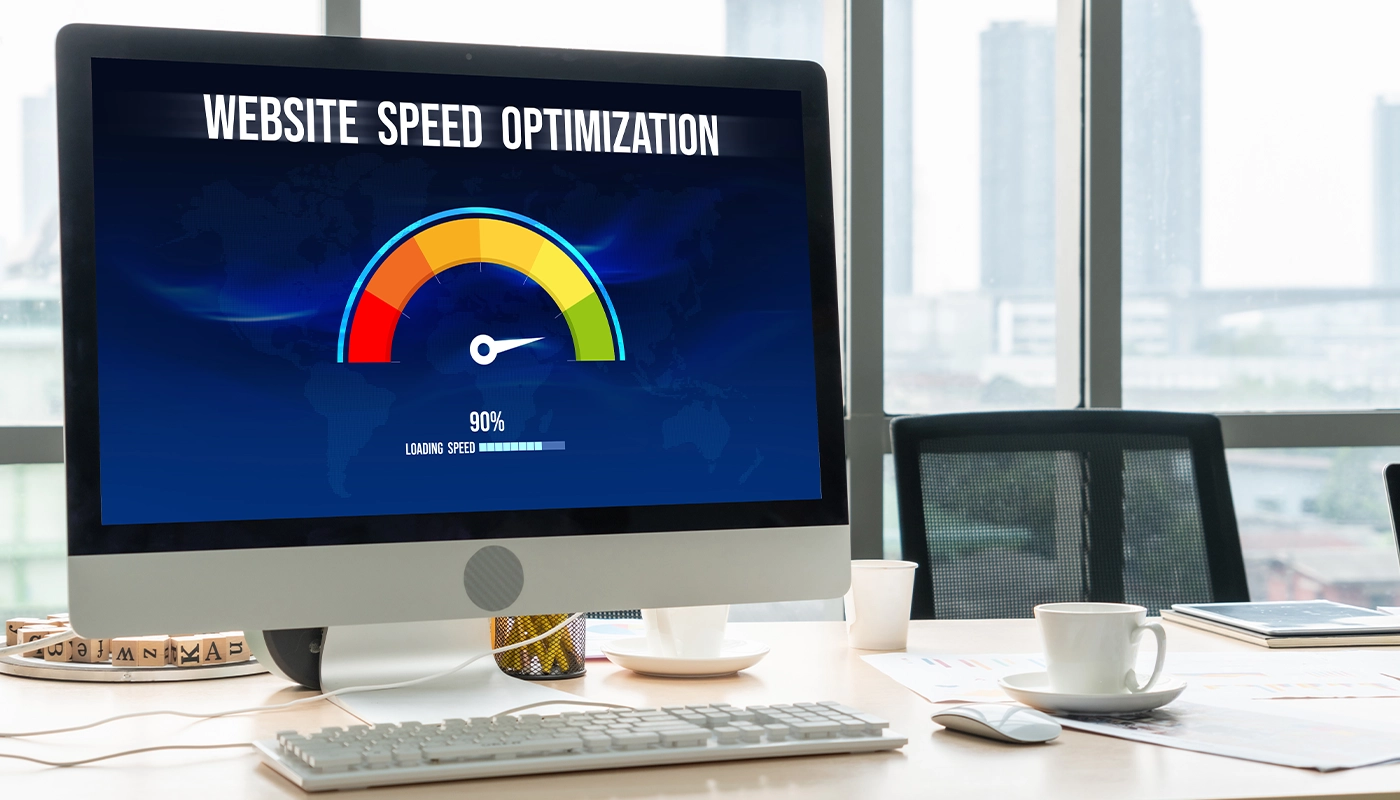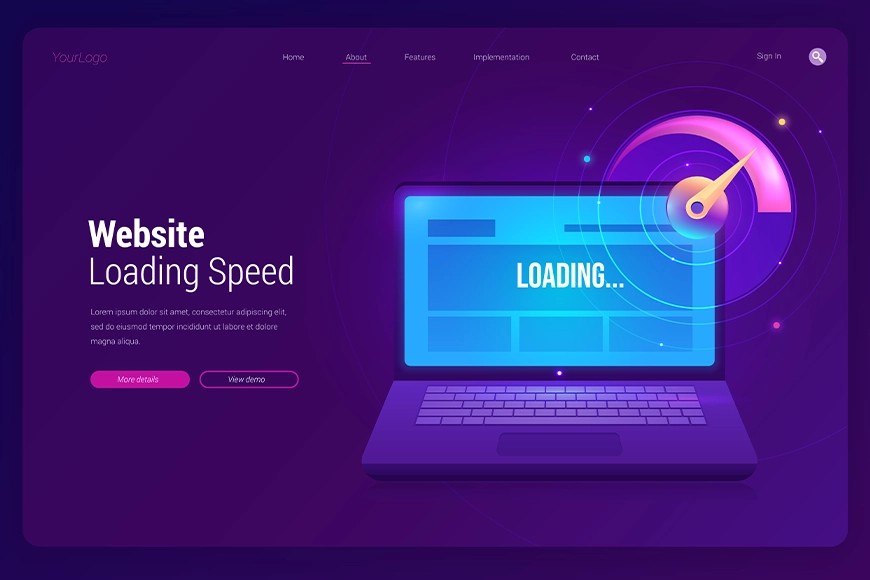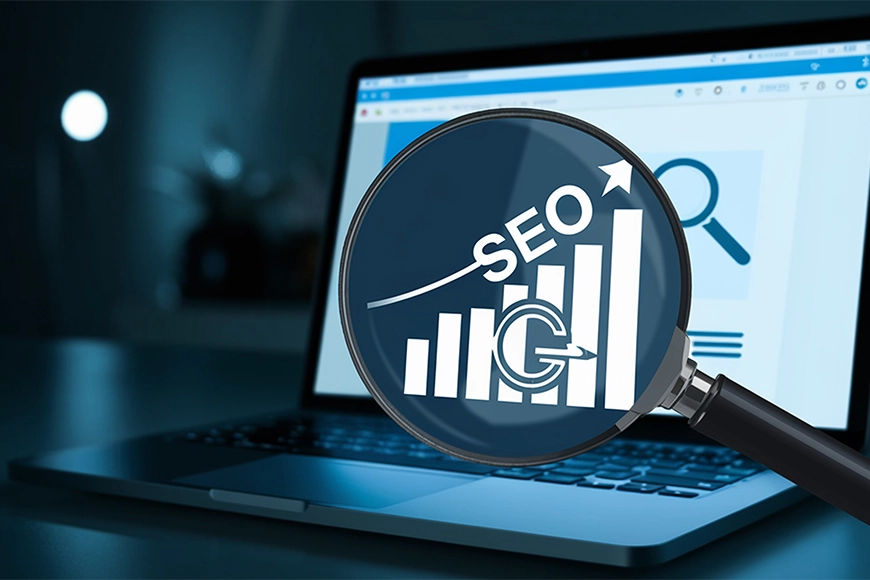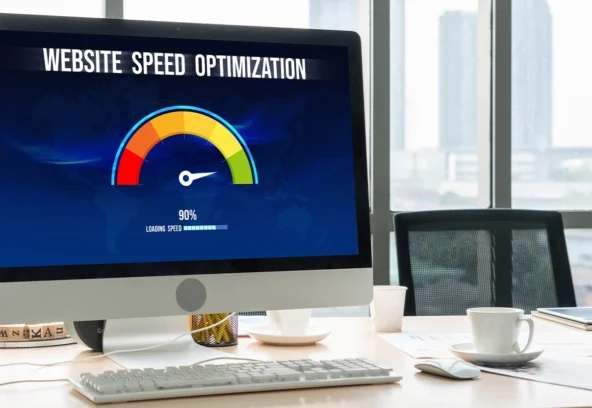
Why Your Website Is Slow & How To Fix It
Top reasons your website speed is suffering and what you can do to improve performance.
A slow website can hurt your user experience, your SEO rankings, and ultimately your business. When visitors wait too long for a page to load, they leave—often within seconds. Whether you’re running an e-commerce store or a service-based business, website speed plays a direct role in conversions, visibility, and credibility.
If you’ve noticed your site loading sluggishly, it’s time to look under the hood. Here’s a breakdown of the most common causes of slow website performance—and how you can fix them.
What Causes a Slow Website
Large Images and Unoptimized Media
High-quality visuals can elevate your website’s appearance, but if they aren’t properly optimized, they can drastically slow down loading times. Large file sizes require more bandwidth and processing power, especially on mobile devices. Compressing images, converting them to next-generation formats like WebP, and enabling lazy loading can help maintain quality while improving site performance.
Too Many HTTP Requests
Every element on your website—images, scripts, and stylesheets—requires an HTTP request. The more elements a page contains, the longer it takes to load. Reducing unnecessary files, combining CSS and JavaScript assets, and enabling asynchronous loading can help your website load more efficiently and deliver a smoother browsing experience.
Unused or Excessive Plugins
Plugins enhance functionality but can also weigh down your website if overused or outdated. Each plugin introduces additional code, scripts, and database queries that can strain server resources. Conducting regular plugin audits and removing unnecessary or redundant ones ensures your website runs faster and more securely.
Bloated Code and Inefficient CSS/JavaScript
Websites rely on HTML, CSS, and JavaScript to function properly, but poorly written or excessive code can cause delays. Unminified files, unused styles, and render-blocking scripts are common performance issues. Minifying files, eliminating unused code, and using modern frameworks are effective ways to optimize load times and improve responsiveness.
Slow Web Hosting
Your hosting provider plays a critical role in website performance. Shared or low-cost hosting plans often limit bandwidth and server resources, causing slow load times during traffic spikes. Upgrading to a dedicated or managed hosting solution designed for speed can enhance reliability and significantly improve website performance.
Lack of Browser Caching
Caching allows browsers to store parts of your website so that returning visitors can access pages more quickly. Without caching, all elements must reload each time someone visits your site. Enabling browser and server-side caching ensures faster loading times and a better overall user experience.
Too Many Ads or Pop-ups
Excessive advertisements, pop-ups, and third-party scripts can quickly degrade website speed. Each ad typically requires additional external requests and data loading, leading to slower performance. Reducing the number of ads and optimizing them for speed helps maintain both performance and user satisfaction.
Not Using a Content Delivery Network (CDN)
A Content Delivery Network distributes your website’s content across multiple servers around the world. Without a CDN, users located far from your main server may experience slower loading times. Implementing a CDN ensures that visitors access your content from the nearest server, improving global performance and reliability.
Excessive Redirects
Redirects are useful for maintaining navigation flow, but having too many can slow down a website by forcing multiple server requests. Reviewing and minimizing unnecessary redirects ensures faster access to your content and a smoother user experience.
By understanding these common causes, you can take actionable steps to improve your website’s loading speed, enhance usability, and strengthen your overall SEO performance. A fast, efficient website not only satisfies visitors but also helps your business stand out in Houston’s competitive digital landscape.

The True Impact of Performance:
Cost of a Slow Site: A slow website does more than frustrate users—it weakens trust and costs conversions. In a world where attention spans are short, speed isn’t optional; it’s a defining part of your brand’s credibility.
Design Meet Performance: At Innovate Haus, we believe design should do more than look good—it should perform. When speed and strategy work together, your brand feels modern, reliable, and built to last.
Speed Is a Reflection of Trust : Users judge a website in seconds. A fast, responsive experience shows your audience that you value their time—and builds trust from the very first click.
Why Website Speed Matters
1. SEO and Search Rankings
Google prioritizes fast-loading websites. A slow site can lower your position on search engine results pages, making it harder for potential customers to find you organically.
2. User Experience
Visitors expect quick, seamless experiences. Delays longer than two seconds often lead to higher bounce rates and lost opportunities.
3. Conversions and Revenue
Every second counts. Studies show that even a one-second delay can drop conversions by up to 20%. Whether you’re generating leads or processing sales, speed equals trust.
4. Mobile Performance
With most users browsing on mobile, a fast, responsive website isn’t optional—it’s essential. Mobile users are less patient and more likely to leave if your pages lag.
5. Competitive Advantage
In today’s digital-first world, speed gives your brand an edge. A faster website doesn’t just rank better—it builds credibility and helps you retain customers longer.


How to Improve Website Speed
Optimize Images: Compress and convert to efficient formats like WebP.
Reduce HTTP Requests: Combine files and remove redundant assets.
Audit Plugins: Keep only essential, lightweight plugins.
Upgrade Hosting: Choose a fast, reliable hosting plan built for performance.
Enable Caching: Implement browser and server-side caching.
Use a CDN: Improve load times globally by distributing content.
Minify Code: Optimize HTML, CSS, and JavaScript for leaner loading.
Limit Ads: Reduce third-party scripts and pop-ups.
Website Speed Optimization in Houston
At Innovate Haus, we specialize in building high-performing, fast-loading websites for businesses across Houston and beyond. From optimizing backend infrastructure to improving front-end design and SEO, our team ensures your website loads fast, ranks higher, and delivers exceptional user experiences.
Whether you’re a local business, e-commerce brand, or professional service provider, our Houston web design and SEO experts can help you identify what’s slowing your site down—and create a strategy that drives real results.




